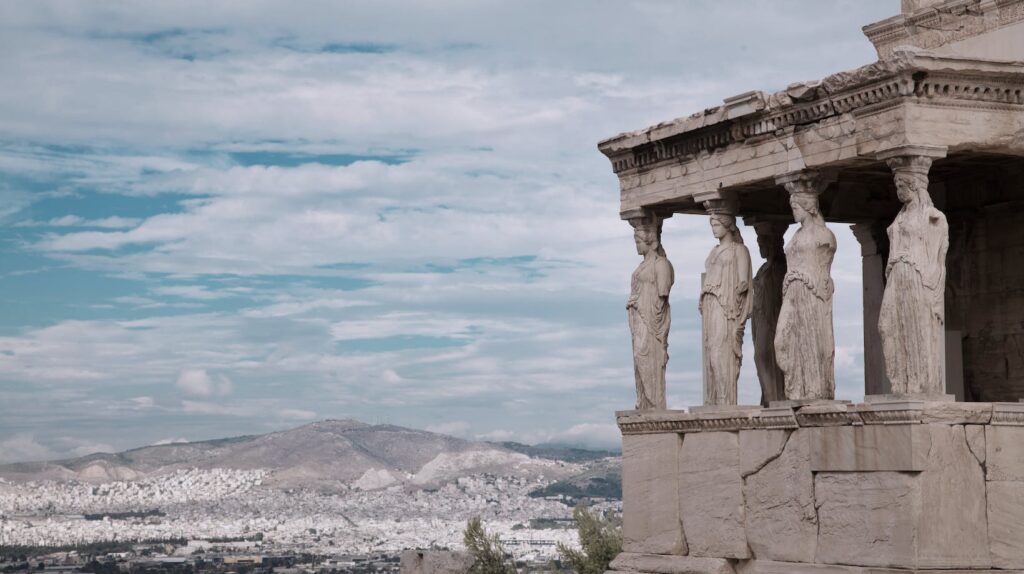The journey of Odysseus in Homer’s epic, “The Odyssey”, is more than just an adventurous tale of a hero’s return home; it serves as a profound reflection of Greek values, particularly the importance placed on family and perseverance. The unwavering determination Odysseus displays in his quest to return to Ithaca speaks volumes about the resilience ingrained in Greek culture. As I delve into his long voyage, it becomes apparent how these cultural ideals are woven into the fabric of the story.
Odysseus’s relentless efforts to reunite with his loved ones highlight the Greek virtue of familial loyalty. His trials and tribulations underscore a deep-seated respect for family ties that were central to ancient Greek society. Despite facing monsters, tempests, and even divine wrath, my examination reveals that Odysseus never loses sight of his goal: to embrace his wife Penelope and son Telemachus once again.
How Are The Greek Values Of Family And Perseverance Shown Through Odysseus’s Return Home?
Odysseus’s Trials and Challenges
The epic tale of Odysseus’s journey in Homer’s “The Odyssey” is a profound testament to the Greek values of family loyalty and perseverance. Throughout his arduous 10-year voyage, he faces countless obstacles that test his strength and resolve. These trials include:
- The bewitching songs of the Sirens
- A narrow escape from the clutches of Scylla and Charybdis
- The wrath of Poseidon, god of the sea
Each challenge serves as a stepping stone towards his ultimate goal: reuniting with his beloved wife Penelope and son Telemachus. It’s not just physical dangers that Odysseus must confront; he also faces emotional turmoil, like resisting Calypso’s offer for immortality—choosing instead the mortal path that leads back to his family.
Odysseus’s Unwavering Commitment to Return Home
Odysseus’s commitment to return home reflects an unyielding dedication—a cornerstone of Greek culture. His longing for Ithaca isn’t rooted in power or wealth but in returning to those he holds dear. This unwavering determination showcases:
- The importance placed on kinship ties
- The resilience necessary to overcome adversity
Even when offered comfort and ease by various entities during his travels, Odysseus remains steadfast in his goal. He cleverly navigates through hardships, often using guile over brawn—an indication that mental fortitude is just as valued as physical strength in Greek society.
His reunion with Penelope further underscores these ideals; she too embodies perseverance, having fended off suitors for years on faith alone. Together, they illustrate a collective portrait of marital fidelity and familial bonds held in high esteem by ancient Greeks.
By intertwining these themes throughout Odysseus’s journey home, “The Odyssey” doesn’t merely tell a story—it immortalizes the virtues revered by its culture.

The Role of Family in Odysseus’s Journey
Penelope’s Loyalty and Devotion
Penelope stands as a pillar of unwavering loyalty throughout Odysseus’s epic journey. Her devotion to her husband is the emotional cornerstone that allows the narrative to explore profound themes of family and fidelity. Despite the prolonged absence of Odysseus, she faithfully awaits his return, warding off suitors with cunning and patience.
- Fending off 108 suitors, she uses clever tactics like weaving and unweaving a shroud.
- Refuses to choose another husband, holding onto hope for Odysseus’s return.
The strength Penelope exhibits isn’t just born out of love; it reflects Greek values where marital commitment is held in high regard. It’s her actions that maintain the integrity of her family unit, safeguarding it against external pressures until reunion becomes possible.
Her resilience also serves as inspiration for other characters within the story. There’s undeniable power in her steady belief that shapes not only her destiny but also fortifies those around her who share in the longing for Odysseus’s homecoming.
Telemachus’s Growth and Determination
Telemachus starts his arc as an inexperienced youth overshadowed by his father’s legacy. As he matures, however, we witness a transformation fueled by his yearning for familial connection and understanding.
- Embarks on perilous journeys seeking news about his father.
- Evolves from passive observer to active participant in defending his home.
This personal evolution highlights another esteemed Greek value: perseverance against all odds. Telemachus doesn’t merely await news; he takes initiative — an action mirroring Odysseus’ own tenacity. His growth from boyhood into manhood parallels with Odysseus’s homeward struggles, suggesting that true nobility comes from one’s efforts to uphold family honor and unity.
His determination underscores a fundamental message within ‘The Odyssey’: that our quests, especially those tied deeply to family ties and bonds, shape us indelibly. The lessons gleaned speak volumes about human resilience when driven by love for one’s kin.
Family acts as both anchor and compass for these characters; it provides them with purpose during times of uncertainty and guides their decisions through tempestuous waters. This framework establishes not only individual character motivations but also larger thematic currents concerning societal expectations of loyalty and duty within familial structures.


More Stories
How HappySlots Conquers the Swedish Gaming Market
How Casinos Use Cognitive Load Principles to Simplify UX
Safe Online Entertainment for Residents of Voorne-Putten